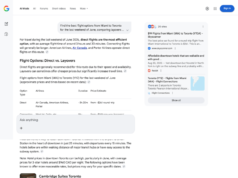NEWS ANALYSIS: Three major internet services, Twitter, Facebook and Google, say they’re taking steps block to silence activities and comments that some find objectionable. But when does that become censorship?
Before I started the write this column today, I spent a few minutes with my favorite news site, The Onion. In the Science and Technology section of that humor newspaper, the headline “Horrible Facebook Algorithm Accident Results In Exposure To New Ideas,” stood out. It seemed appropriate to this week’s announcement that Facebook would start banning what it describes as “fake news.”
The reason it seemed appropriate is that Facebook, along with Google, has announced a variety of measures to cut back on fake news, without any real definition of what they consider fake.
Meanwhile, Twitter has announced that it’s cancelling the accounts of users that the service thinks are followers of “Alt-Right” ideology. But like Facebook and Google, Twitter does not define how it decides which users fit that description.
These actions raise a number of questions that the managers of the sites really need to answer. The first question is what exactly constitutes fake news? If it’s that is a news post that has inaccuracies, then it could mean that Facebook and Google are taking action against every news source on the Internet, if only because they all have errors at one time or another. Most sites correct those errors, but does making a mistake mean you’re a fake news site?
Perhaps not, since one presumes that the goal of most objective news sites is to tell the truth, even if there are errors from time to time.
So what about obviously fake news sites such as The Onion, which revels in its role as a purveyor of fake news and in the process takes satire to new highs? But should it be banned because it’s fake news? After all, satire has a long and honored place in publishing. Satires has had an important role in public discourse since kings kept court jesters to help their courtiers develop a sense of humor.
But what about stories being planted that say things such as Pope Francis is endorsing Donald Trump? Is this really fake news? Are people really that gullible? And if they are, could a fake story like that really influence a U.S. election?
Over at Twitter the problem with unwelcome speech is one that’s more related to online harassment and hate speech. This problem recently surfaced when comedienne Leslie Jones of Saturday Night Live suffered a barrage of really awful attacks on Twitter at the hand of one Milo Yiannopoulos, who also happens to be an editor of Breitbart News, a right-wing news site whose CEO at the time was Steve Bannon, now on the Trump transition team.
You see the problem. It’s one thing to protect legitimate news outlets from people or groups that don’t want to shut them down for telling the truth without fear or favor. But what happens when the people who work at certain purported news outlets aren’t presenting news, but rather hate? The problem is already becoming murky.







